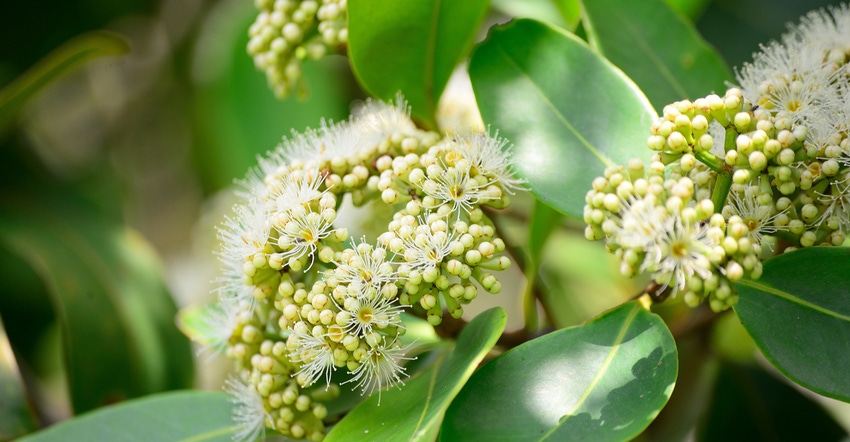As sugar takes center stage as public enemy No. 1, consumers are ready to make serious changes to their diets in 2018.

Sugar has been called the new fat, the latest food villain, even an inconspicuous mass murderer of sorts. And while for years, the debate has raged on regarding just how dangerous sugar is, authors, such as Gary Taubes, aren’t afraid to suggest that sugar is highly addictive, just like tobacco. In fact, he asserts, “Big Sugar” has armed itself much in the same way “Big Tobacco” did, making it their objective to refute sugar’s role in chronic illness, going as far back as the 1940s.
“It was in effect the Big Tobacco strategy: Amplify uncertainty about what causes what, put the skeptics on your payroll, kick the can of scientific proof even further down the road,” Taubes wrote.
Taubes also said the main culprit for today’s obesity epidemic is sugar and carbohydrates, not fat as originally suggested by the medical and scientific communities in the 1970s. Since then, he claims, the dietary advice we’ve all been told to follow is downright wrong.
It gets worse. Most recently, CNN featured an article stating sugar causes obesity and obesity causes cancer.
It seems most roads to many diseases are paved with sugar these days. The good news is consumers are ready to make changes. In a recent survey conducted by OmniActive Health Technologies (omniactives.com), more than 50 percent of consumers said if they had to cut one thing from their diet—e.g, salt/sodium, wheat, fat or sugar/carbs—it would be sugar/carbs.
Big consumer packaged goods (CPG) players are also responding. In September, Coca-Cola launched the Sweetener Challenge in response to the war on sugar, which has sent soda sales tumbling for the last 12 years, according to a report by trade publication Beverage Digest. Using crowd-sourcing platform, HeroX, Coca-Cola is specifically looking to find a natural, safe, reduced, low- or no-calorie compound that generates the taste sensation of sugar when used in beverages and foods. And, it is offering US$1 million to the person or company that can deliver this innovation.
Sugar Consumption Out of Control
The average American consumes 82 g of sugar per day, which is more than double the recommended daily intake most health authorities recommend: 25 g/d for women; 40 g/d for men (Circulation. 2009 Sep 15;120(11):1011-20). This overconsumption can lead to a range of health issues from cavities to insatiable hunger, weight gain, insulin resistance, diabetes, obesity and more.
Excess sugar creates a cycle of overeating, which interferes with proper nutrition and impacts metabolic health. As reported in the 2015-2020 Dietary Guidelines for Americans, “Americans are consuming roughly double the amount of sugar that is recommended to maintain a healthy diet. This is happening in combination with high consumption of foods that contain large amounts of fats, refined flours and other processed ingredients that contribute to increasing blood sugar levels and weight gain.”
It goes without saying, creating solutions that can adequately address America’s sugar crisis are well overdue.
A Nutritional Solution That Addresses Blood Sugar and Weight Management
Because they are so closely linked, consumers need nutritional solutions that address both blood sugar and weight management concerns. One such solution is Salacia chinensis, which comes from a family of herbs used for thousands of years in Ayurvedic medicine to treat diabetes. While other forms of Salacia have been used in the marketplace, the most recent research has been conducted on Salacia chinensis.
Salacia chinensis offers a multi-pronged approach toward weight management through its effects on appetite control and blood sugar maintenance. This is because of its actions on the final step in carbohydrate digestion, as well as its actions on gut peptides. In this way, it is differentiated from other products on the market touted as “carb blockers,” and it addresses the steadily increasing desire for a safe and natural approach to blood sugar control.
The B.I.G. (blood, insulin and glucose) Study was a randomized, double-blind, crossover study in 35 healthy individuals looking at the effect of two different doses—300 mg or 500 mg—of Salacia chinensis (as OmniLean from OnmniActive Health Technologies) on the effects of blood glucose and insulin following a sugar load (J Diabetes Res. 2016;2016:7971831). Salacia chinensis helped reduce the early rise in blood glucose and insulin following a high-sucrose load. The result is a safe and effective means to help manage healthy blood insulin levels by reducing the intestinal absorption of carbohydrates.
The CARBS (carbohydrate, appetite reduction and blood sugar) Study was a randomized, double-blind, placebo-controlled, three-way crossover study and the first to examine the effects of a proprietary extract of OmniLean on glycemic indices and gut hormones after a meal (Nutrients. 2017 Aug 12;9(8). pii: E869). Salacia chinensis, taken with a meal, resulted in an improved glycemic response and changes in gut hormones in healthy overweight/obese individuals, thereby reducing blood sugar spikes and impacting appetite and satiety.
Salacia chinensis breaks the cycle of overeating by reducing hunger, the urge to snack and blood glucose spikes resulting from a high-carbohydrate meal. It accomplishes this through its ability to manage sugar and carbohydrate absorption and metabolism, and impact important gut hormones. To that end, it represents a small, easy change that may make a big difference in helping consumers curb their sugar intake, and make healthier choices.
Becky Wright is marketing manager, Innovation, OmniActive Health Technologies (omniactives.com). She has 18 years of experience in the nutritional products industry, most recently with krill oil supplier Aker BioMarine. Prior to that she was the editor of an industry publication for 13 years.
About the Author(s)
You May Also Like




.png?width=800&auto=webp&quality=80&disable=upscale)